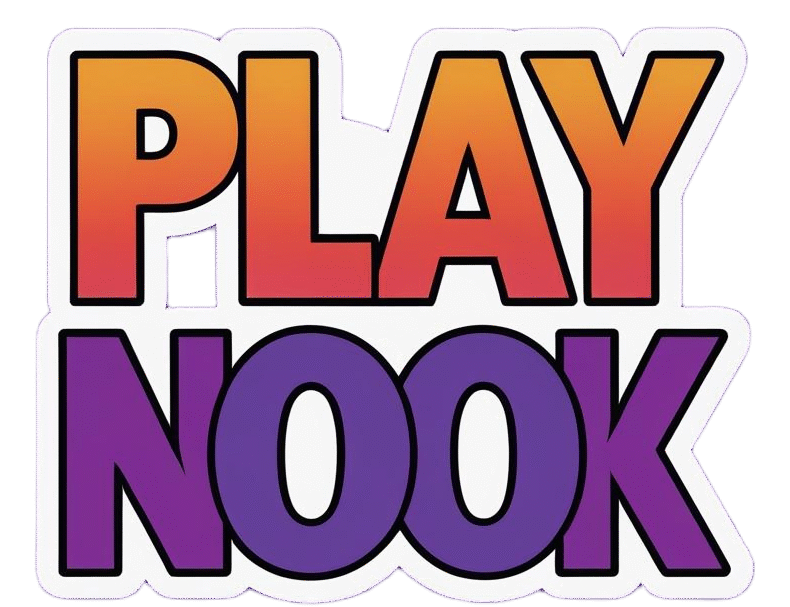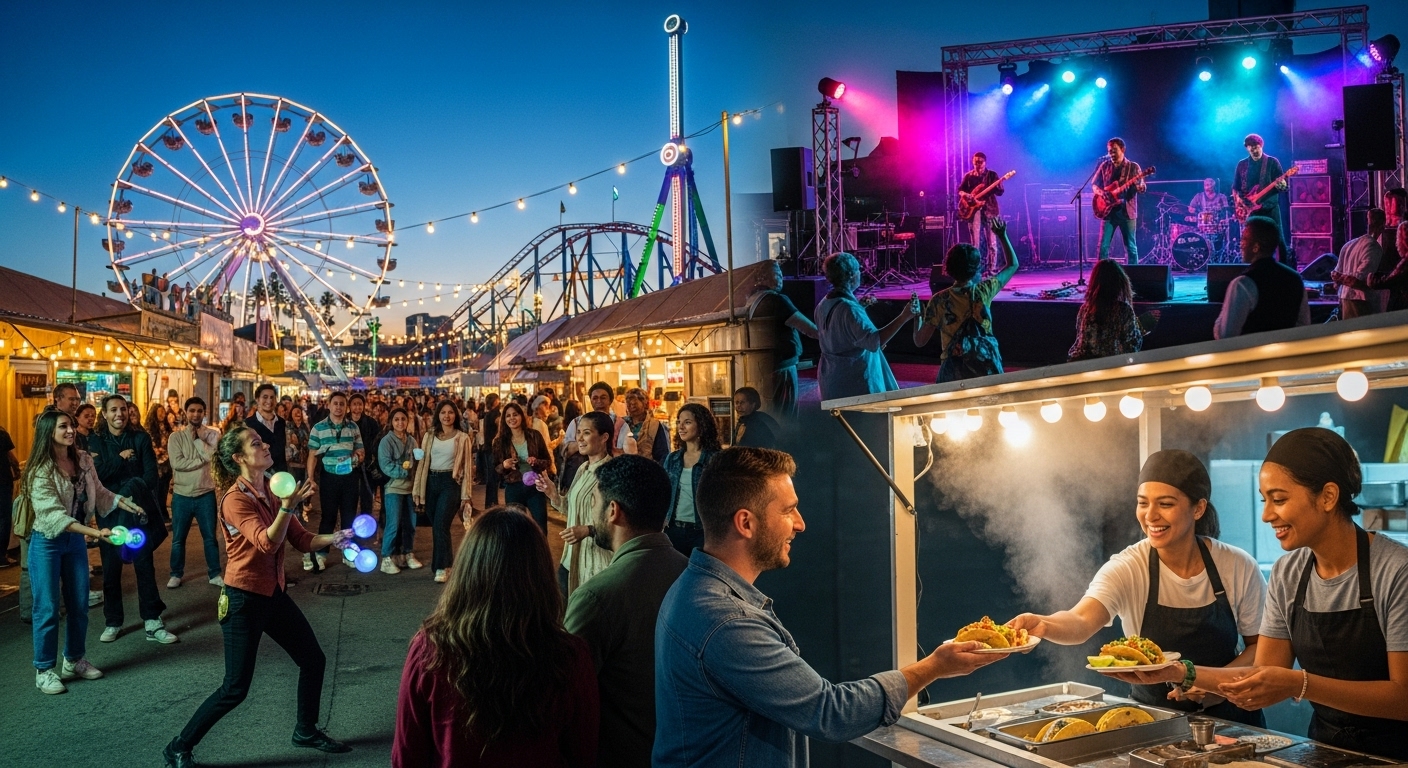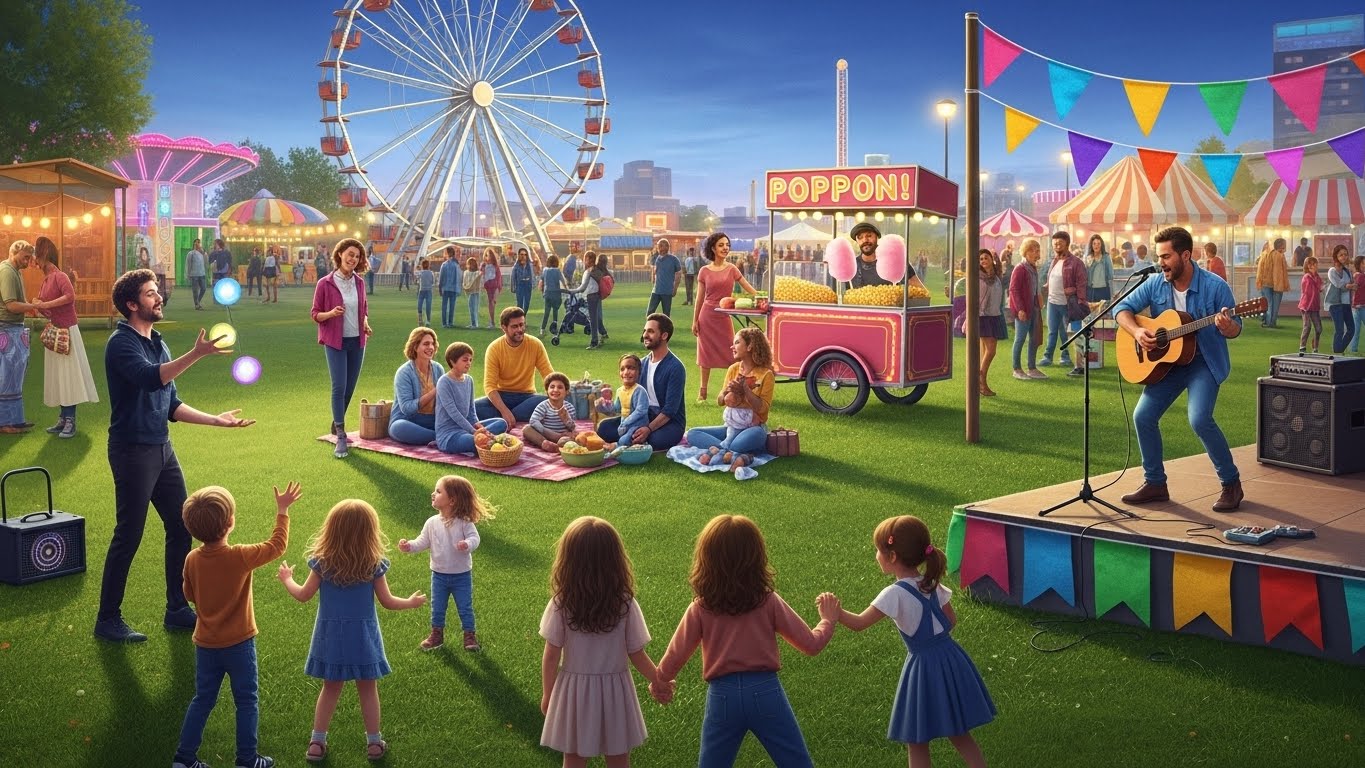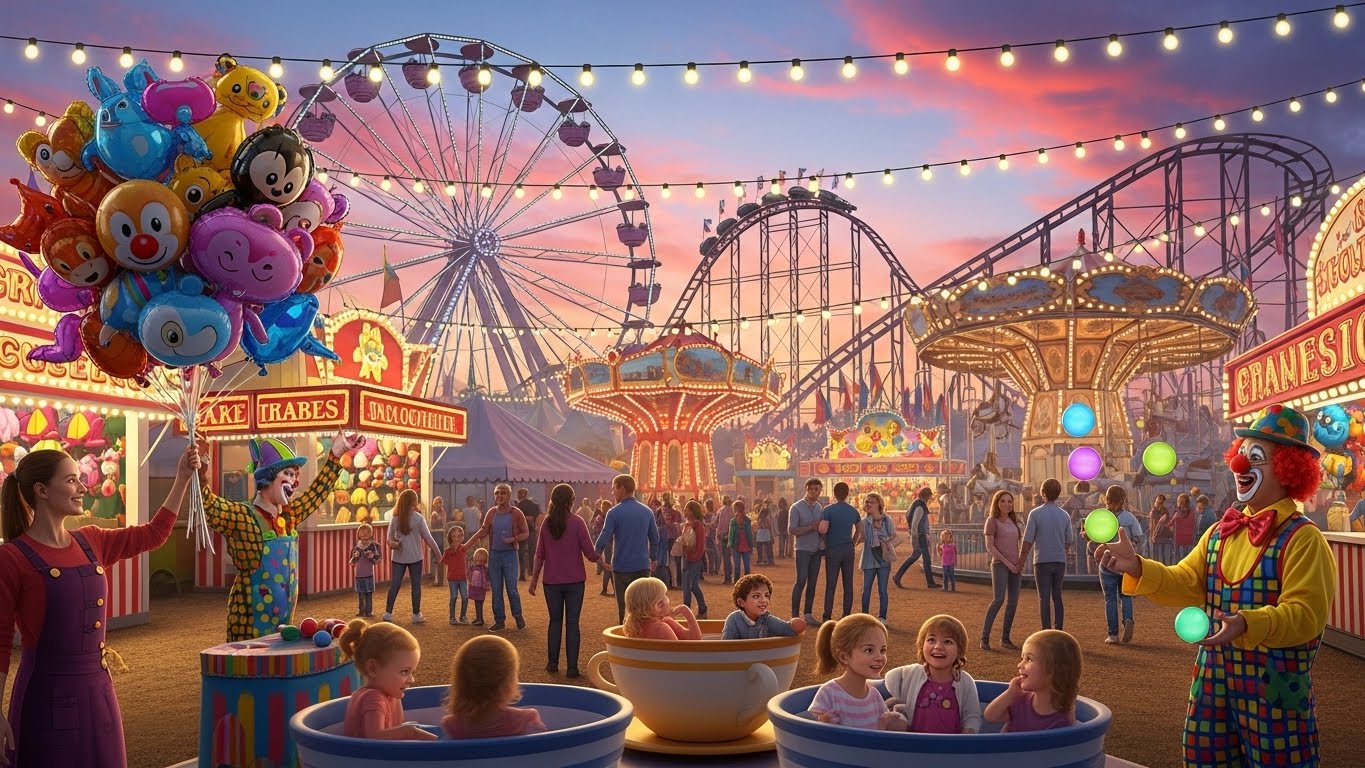Entertainment is a dynamic, constantly evolving concept, and over the years, it has transformed into a vast industry that touches nearly every aspect of our lives. What started as live theater performances, radio broadcasts, and physical books has morphed into an intricate web of digital content. From movies and TV shows to music, social media, and video games, entertainment has become an essential part of modern society. The digital age has brought about revolutionary changes in the way we consume, create, and share entertainment. Today, the global entertainment market is worth trillions of dollars, and its influence can be felt across cultural, social, and economic spheres.
In this blog post, we will explore the evolution of entertainment—how it has transformed from its traditional roots to its current digital domination—and what the future might hold for the industry. Let’s dive deep into the entertainment landscape and see how each phase of this evolution has shaped the world we live in today.
The Early Days of Entertainment: Theater, Radio, and the Birth of Cinema
The origins of entertainment trace back to ancient civilizations where performance art such as theater and dance played vital roles in cultural expression. In Ancient Greece, the idea of dramatic performances came to life through plays by writers like Sophocles and Euripides, which were staged in massive open-air amphitheaters. These live performances were among the earliest forms of entertainment that engaged the masses, often carrying societal messages through tragedy or comedy.
As societies evolved, so did their methods of entertainment. In the 20th century, the advent of new technologies—specifically the radio and film—revolutionized the way people experienced entertainment. The 1920s marked the golden age of radio, which became a primary source of entertainment for families across the globe. Radio programs featuring music, news, and drama played a central role in daily life, often bringing the world into living rooms. For the first time in history, people could hear live broadcasts of music performances, sports events, and radio plays from the comfort of their homes.
The rise of cinema during the early 1900s also played a crucial role in shaping modern entertainment. Early pioneers like Thomas Edison and Georges Méliès introduced film as a new medium for storytelling. By the 1920s and 1930s, Hollywood emerged as the epicenter of global cinema, and movies became an international form of entertainment. The introduction of sound in movies in the late 1920s—through films like The Jazz Singer—ushered in the age of “talkies” and made film even more immersive for audiences.
While the emergence of these new forms of entertainment was groundbreaking, they still relied on traditional formats like live performances, scheduled broadcasts, and physical attendance. But the next phase of entertainment would push these boundaries even further.
The Rise of Television: The Family Entertainment Revolution
The 1950s and 1960s ushered in the golden age of television. In many ways, television took the best elements of radio and cinema and combined them into one platform. The family television set became a fixture in most households, bringing drama, comedy, variety shows, news, and educational programming directly into people’s homes. During this time, shows like I Love Lucy, The Twilight Zone, and The Ed Sullivan Show became household names, drawing millions of viewers every week.
For the first time in history, television brought entertainment into the private domain. Families could now sit together and watch a shared experience in the comfort of their living rooms. This shift in entertainment consumption altered how people socialized, interacted with media, and viewed the world. The influence of television also expanded into new formats such as mini-series, reality TV, and late-night talk shows, shaping popular culture in unprecedented ways.
One of the most notable changes television brought was its ability to create massive, widespread audiences. Broadcast television could reach millions of people simultaneously, making it a potent tool for advertisers, political campaigns, and cultural movements. Brands could now target a global audience through commercials, and important events—like the first moon landing in 1969—could be broadcast live to the entire world, cementing the role of television as a central source of information and entertainment.
The Birth of the Internet: A Digital Revolution in Entertainment
The 1990s and early 2000s saw the rise of the internet, which fundamentally changed the landscape of entertainment. With the click of a button, people could access virtually any kind of entertainment, from music and movies to news and social interactions. The internet democratized access to content, allowing smaller creators and niche markets to thrive. It also shifted the control of entertainment away from traditional gatekeepers like film studios, TV networks, and radio stations.
One of the first major disruptions to traditional entertainment came with the rise of file-sharing platforms. Napster, launched in 1999, allowed people to share and download music for free, fundamentally challenging the music industry. Although Napster was eventually shut down due to legal issues, it paved the way for future digital platforms like iTunes, Spotify, and YouTube, which revolutionized how people accessed music and video content.
Streaming services emerged as the next major game-changer. In 2005, YouTube was founded, allowing anyone to upload videos and share them with a global audience. The platform quickly became a place for user-generated content, from viral videos to professional-quality shows, and today, YouTube is one of the largest entertainment platforms in the world.
Another monumental shift occurred in 2007 when Netflix transitioned from a DVD rental service to a streaming platform. By 2010, Netflix was offering a vast catalog of movies and TV shows that could be accessed on-demand. The company’s decision to create original content in 2013 with House of Cards and later Stranger Things marked the beginning of the “streaming wars,” as other tech giants like Amazon Prime Video, Hulu, and Disney+ entered the market. Streaming has now become the dominant form of television consumption, leading to the decline of traditional cable TV subscriptions.
The internet has also paved the way for the rapid growth of video games, which have emerged as one of the most lucrative forms of entertainment. Online multiplayer games, esports, and streaming platforms like Twitch have made gaming not just a hobby, but a multi-billion-dollar industry. Video games have become as influential as movies and TV shows in terms of culture, with games like Fortnite and League of Legends attracting millions of players and viewers globally.
The Age of Social Media: Personal Entertainment and Interaction
With the rise of social media platforms like Facebook, Instagram, Twitter, and TikTok, entertainment has taken on a more personal, interactive, and often viral nature. These platforms have transformed how people create, consume, and engage with entertainment. Social media gives anyone the ability to reach a global audience, allowing creators—whether they’re musicians, comedians, or influencers—to share their work directly with fans. The level of interactivity is unprecedented: followers can comment, like, share, and even directly engage with the creators they admire.
Platforms like TikTok have given rise to new entertainment formats, with short, snappy videos dominating social media feeds. Music challenges, dance routines, and viral memes have become the new forms of entertainment that spread quickly and reach millions of people around the world. TikTok’s influence on music charts, fashion, and pop culture has made it a powerhouse in the entertainment industry, altering how content is created and consumed.
Social media also plays a significant role in the success of movies, TV shows, and other forms of entertainment. Viral marketing campaigns, fan engagement, and influencer partnerships have all contributed to the success of entertainment properties. Movies like The Avengers and Black Panther have used social media to build hype before their release, with fans eagerly sharing content and discussing theories. In many ways, social media has become a vital tool for promoting entertainment, blurring the lines between content creation and fan participation.
The Future of Entertainment: Virtual Reality, Artificial Intelligence, and Beyond
As technology continues to evolve, the entertainment industry is on the brink of another revolution. Virtual reality (VR) and augmented reality (AR) are poised to transform how we experience entertainment. VR headsets allow users to immerse themselves in digital worlds, offering interactive, three-dimensional experiences. Companies like Oculus and HTC Vive are already developing VR systems that offer everything from video games to virtual concerts and movies.
In the realm of gaming, VR has the potential to revolutionize how we play and experience games. Beat Saber, a VR rhythm game, is already a massive hit, and more immersive titles are being developed every year. In the future, VR could create new forms of entertainment that blend gaming, theater, and cinema into a completely immersive experience.
Artificial intelligence (AI) is also expected to play a pivotal role in shaping the future of entertainment. AI can personalize recommendations based on individual preferences, optimize content creation, and even generate art and music. Companies like OpenAI are already exploring the possibilities of AI-generated content, including music, poetry, and visual arts.
The future of entertainment may also include advancements in holographic technology, where concerts, events, and even movies could be experienced in 3D, projected into real space. The idea of attending a concert by a holographic performer, or watching a movie where the characters seem to interact with you in real time, could soon become a reality.
Conclusion: A Never-Ending Evolution
Entertainment, as we know it, is constantly evolving. From the early days of live theater and radio to the rise of television, the internet, and social media, the industry has undergone monumental changes. Today, digital platforms, streaming services, and interactive gaming have made entertainment more accessible, personal, and immersive than ever before.
Looking ahead, technologies like virtual reality, augmented reality, and artificial intelligence are poised to take entertainment to even greater heights. The entertainment industry will continue to expand and diversify, offering new experiences that cater to every taste, age group, and interest. With the ever-growing influence of the digital age, the future of entertainment is exciting, unpredictable, and filled with limitless possibilities.
The entertainment landscape may change, but one thing remains constant: our desire for connection, stories, and experiences that enrich our lives. The evolution of entertainment is a testament to the endless creativity of humanity, and it shows no signs of slowing down. Whether it’s through traditional mediums or emerging technologies, one thing is clear—entertainment will continue to shape and reflect our world in profound ways for years to come.



